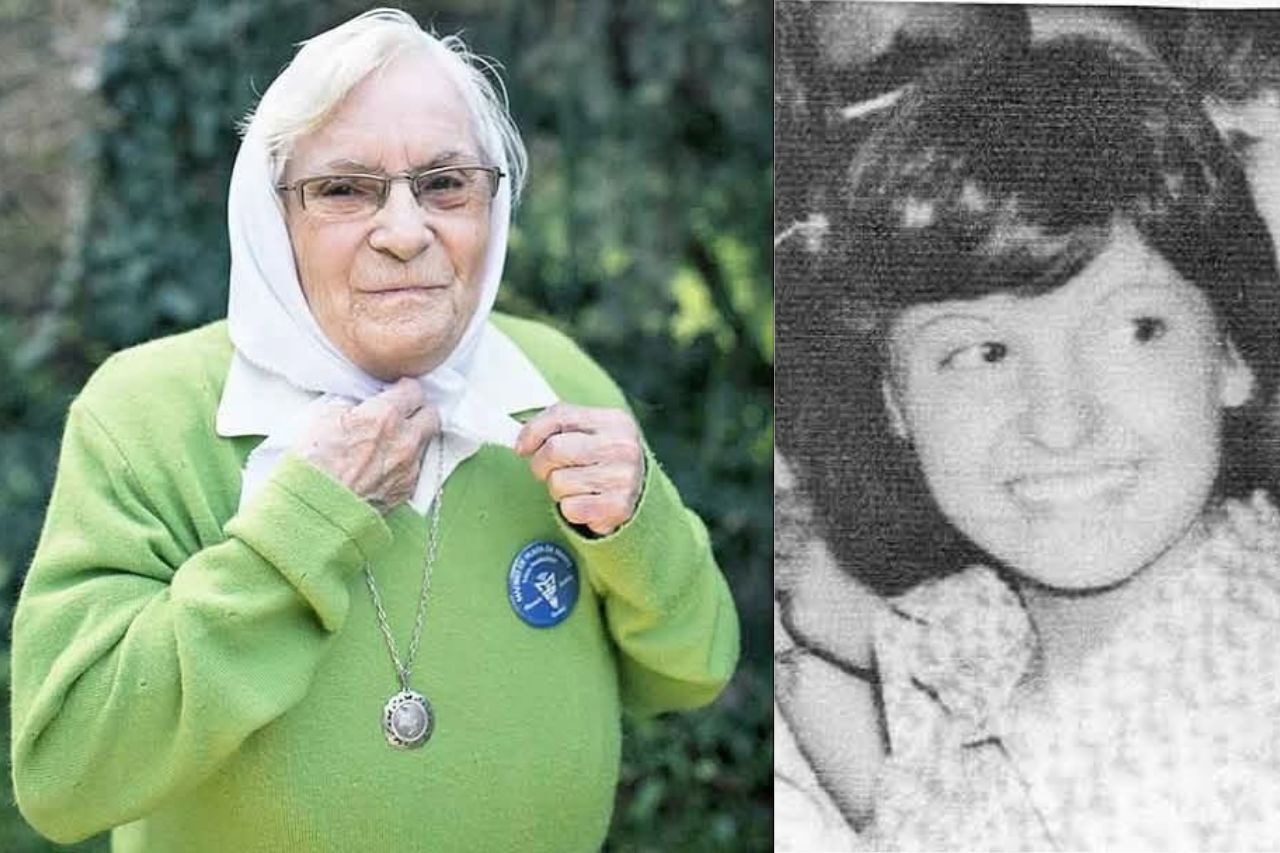Mother of Plaza de Mayo Aída Bogo de Sarti died on Saturday at the age of 94. She fought for decades to find answers on the disappearance of her daughter Beatriz Sarti, who was kidnapped by the last military dictatorship in 1977, at 22.
The Mothers of Plaza de Mayo Founding Line published a short communiqué on Instagram on Sunday to announce her passing.
“A mark of her passion is our documentation center, which she dedicated so many hours each week while she had good health,” the communiqué said. The organization said Bogo died on International Women’s Day, “which she honored with her tireless activity” in the Casa Nuestros Hijos, where Bogo was in charge of organizing their archive.
“Rest peacefully. Dear Aída, we will continue working on the archive and we won’t be disheartened, just like you, not even under the worst life circumstances in our homeland. We won’t forget you.”
Former Human Rights Secretary Horacio Pietragalla — son of a disappeared militant — described Bogo as a “tireless fighter” in an Instagram post. “With the white handkerchief as a banner, we say goodbye to Aída, mother of the people,” wrote the Buenos Aires City branch of HIJOS — an organization made up of children of dictatorship victims.
¡Hasta siempre Aída Bogo de Sarti!
Integrante de Madres de Plaza de Mayo Línea Fundadora. Su hija Beatriz Cristina Sarti fue detenida-desaparecida el 17/5/1977 con 22 años. Militaba en el ERP. Su cuerpo sigue desaparecido
Nuestro abrazo a la familia y a las compañeras de Madres pic.twitter.com/azuvACbFEU
— H.I.J.O.S. Capital (@hijos_capital) March 10, 2025
Like most Mothers of Plaza de Mayo, Bogo was a seamstress dedicated to family life and raising her two daughters, Beatriz and Claudia, in their house in Remedios de Escalada, Lanús.
That all changed on May 17, 1977, when Beatriz was kidnapped along with her boyfriend Ángel Arias from their home in Monte Chingolo, a nearby neighborhood. The dictatorship’s authorities had already searched the Sarti household three times looking for Beatriz before the kidnapping, but she wasn’t living there anymore.
“We never heard from them again. We don’t even know if they took them alive or dead,” Bogo told the website Educación y Memoria (Education and Memory) in an interview a few years ago. “All we know is that they took them away.”
Beatriz was a militant against the dictatorship and belonged to the People’s Revolutionary Army (ERP, by its Spanish initials). After her forced disappearance, Bogo joined the group of women who were searching for their children that would later become Mothers of Plaza de Mayo.
“Any mother that experienced the same thing would have gone out to the street,” she said in that interview. “The proof is in the fact that it happened again afterwards — and I say this with pride — with the mothers that experienced different things […] and went out to form organizations. And I think that we are exemplary because we stood up to the dictatorship thousands of times.”

